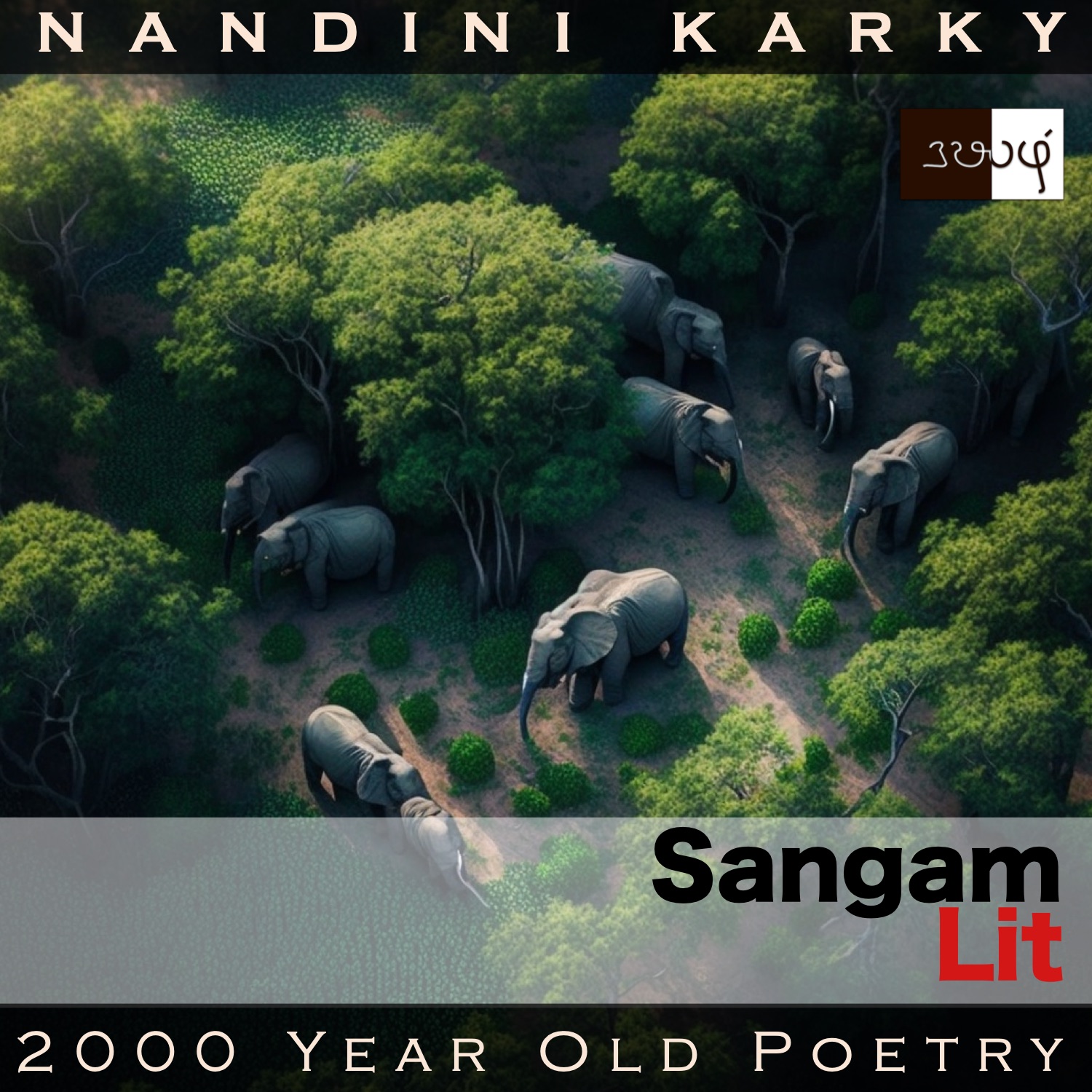Podcast: Play in new window | Download
Subscribe: Apple Podcasts | Spotify | Amazon Music | Android | iHeartRadio | TuneIn | RSS | More
In this episode, we listen to a curious question about a forest, as depicted in Sangam Literary work, Puranaanooru 131, penned about the Velir King Aay Andiran by the poet Uraiyoor Enicheri Mudamosiyaar. Set in the category of ‘Paadaan Thinai’ or ‘King’s praise’, the verse echoes the generosity of this king.

மழைக் கணம் சேக்கும் மா மலைக் கிழவன்,
வழைப் பூங் கண்ணி வாய் வாள் அண்டிரன்,
குன்றம் பாடினகொல்லோ
களிறு மிக உடைய இக் கவின் பெறு காடே?
A tiny song with an interesting core. The poet’s words can be translated as follows:
“Did this picturesque forest sing the praises of the lord of the huge hills, where rain clouds reside; He, who wears a garland of ‘vazhai’ flowers; The one with an unconquerable sword – King Andiran? For they seem to be teeming with elephants many!”
Let’s take a deeper look at the words here. The poet seems to have walked into a lush forest and seen many, many elephants roaming thither. Looking at this, he recollects another scene he has oftened encountered in King Andiran’s court. That is when the king is seen giving away elephant after elephant to bards, who have penned in praise of this king and his country. So, he turns to the landscape before him and asks whether this forest too sang the praises of the king, which would explain the numerous elephants found there!
Looking back with the eyes of the twenty-first century, we know that elephants are not possessions to be given away as one pleased. They are the treasures of the wild and should remain where they belong. However, this ancient poet would have never realised that something he’s celebrating about the king would, later in time, turn out to be a thing that the world disapproves. The truth to understand though is that writers are victims of their times. They can only report what they see as it was seen then. There is this recent trend of going back and changing the writings of authors, whose words seem jarring to the current generation. This is whitewashing of the past. Instead, it would be best to accept that history is not perfect and there is no need to change it to suit the sensibilities of the present. At the same time, we should accept with humility that some act of ours that we celebrate as noble today may make the future turn back in disbelief and say, “How could they?”




Share your thoughts...